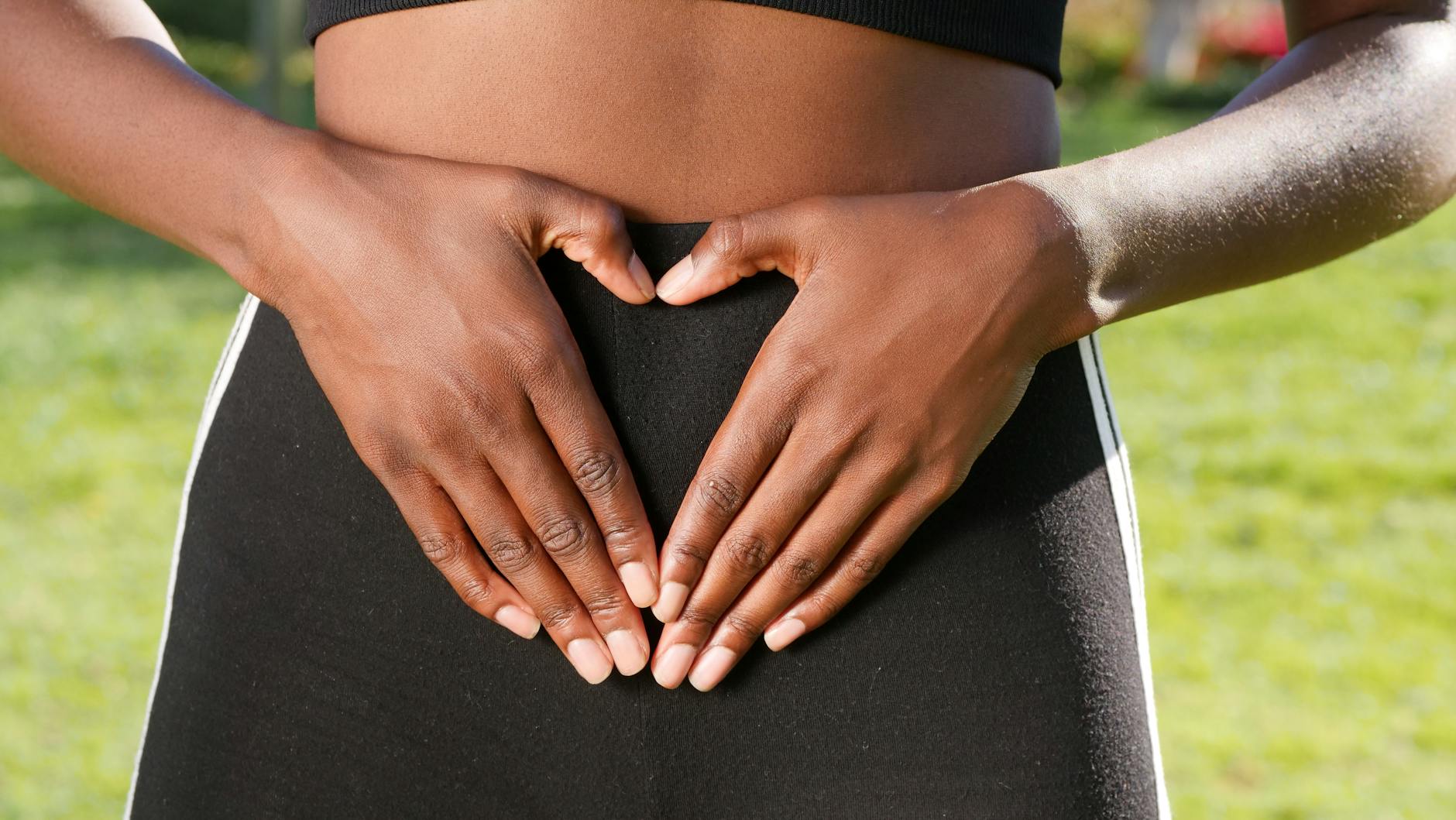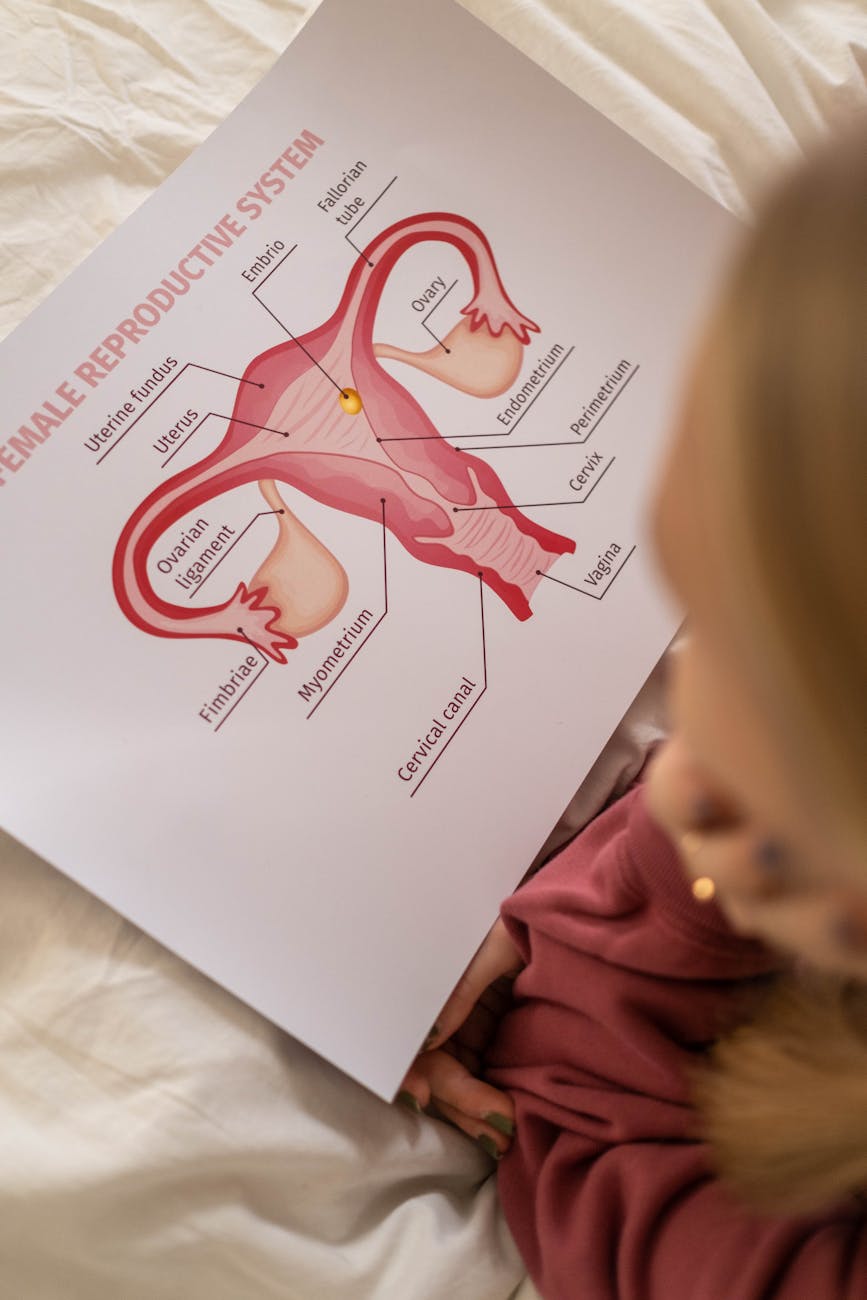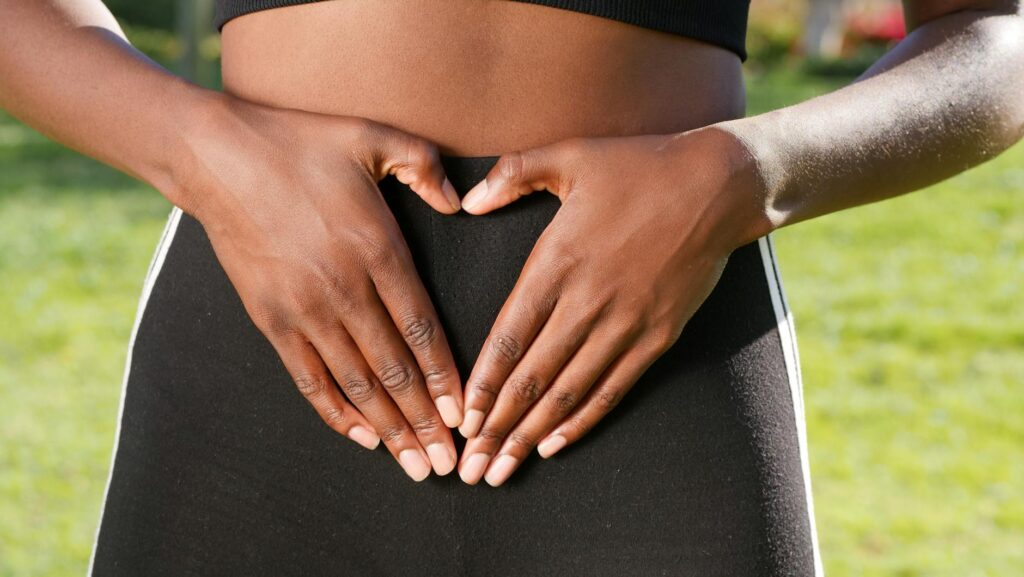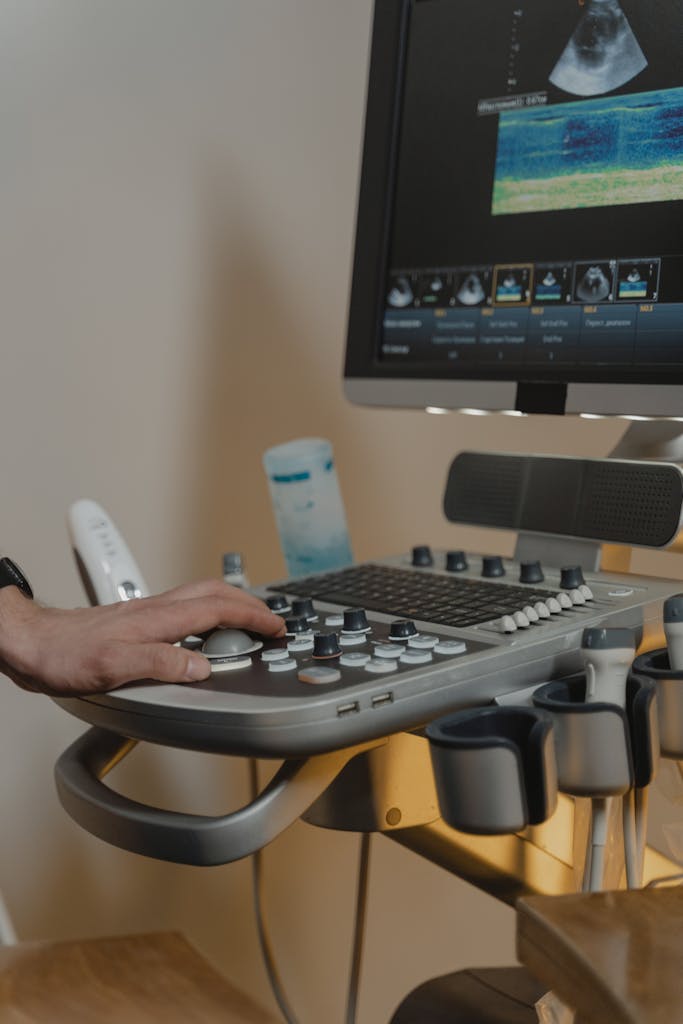Fibroid Belly: Are Fibroids Causing Your Bloating?
We’ve all experienced bloating: that uncomfortable feeling of fullness and tightness in your abdomen. While diet, hormones, and digestive issues are often to blame, another lesser-known culprit could be lurking: fibroids.
But how do you know if you’ve put on a few extra pounds or if fibroids are causing bloating? First, I’ll explain what a fibroid is.

What are fibroids?
Fibroids, or uterine leiomyomas, are non-cancerous growths in or around the uterus. According to the Office on Women’s Health, these growths are incredibly common, with up to 80% of women experiencing them by age 50. While many women with fibroids may not experience any symptoms, others may suffer from heavy menstrual bleeding, pelvic pain, and, yes, bloating.
Potential link between fibroids and bloating
So, how exactly can fibroids contribute to bloating? The answer lies in their size and location. As fibroids grow, they can press against the bladder or intestines, leading to a range of symptoms, including bloating. When fibroids put pressure on the bladder, it can lead to frequent urination and a sensation of fullness in the lower abdomen.
Similarly, when fibroids press against the intestines, they can interfere with digestion, leading to bloating, gas, and constipation.
Another way fibroids might contribute to bloating is through hormonal changes. Estrogen, a hormone that stimulates the growth of the uterine lining during the menstrual cycle, can also cause fibroids to grow. As estrogen levels fluctuate throughout the menstrual cycle, fibroids can swell, potentially exacerbating bloating symptoms.
If you have a medical history of hormonal imbalances or other hormone-related conditions, you may be at greater risk for fibroids. Other risk factors for fibroids include obesity and a family history of fibroids.
My experience with “fibroids belly”
Before I was diagnosed with fibroids, I dealt with chronic bloating. For years I thought it was stubborn belly fat. Then I realized that no matter what I ate (or didn’t eat), I’d still have a protruding belly a few hours into the day.
My bloating was more caused by hormonal imbalance and the pressure a large fibroid was putting on my organs. So it would come and go. Once I learned how to work on my hormonal imbalance and my fibroids began to shrink, I started to experience much less bloating. It just took some investigating to get to the bottom of the issue.

Recognizing the signs
Differentiating between bloating caused by fibroids and bloating from other sources can be challenging. However, certain signs can indicate a possible link to fibroids, such as:
- Bloating that worsens with the menstrual cycle
- Bloating accompanied by other common fibroid symptoms, such as pelvic pain, heavy periods or heavy bleeding.
- Bloating that persists despite dietary changes or lifestyle modifications.
Sometimes, it is easier to tell if large fibroids are the culprit. If you’re experiencing a stomach bulge in one spot or one side of your abdomen that doesn’t seem to ever go away, it might be more obvious due to an enlarged uterus.

Fibroid Fighting Quickstart Guide
Subscribe and get a guide to start fighting fibroids today. And be the first to know when my ebook is ready.
Managing bloating and fibroids
Some conventional medical interventions could help fibroids. Minimally invasive procedures like uterine fibroid embolization and minimally invasive myomectomy may be an option for some women’s fibroid treatment.
However, lifestyle changes, including diet modifications and regular exercise, can alleviate bloating and improve overall health, which may help shrink fibroids or keep them from getting larger. There are many simple lifestyle changes you can make.
Tips for reducing bloating
1. Eat more slowly. Seeing, smelling, and even touching your food can signal your digestive system to prepare for digestion. Take the time to chew thoroughly to maximize the benefits and improve the digestibility of your food.
2. Try probiotic foods or digestive enzymes. Probiotics and digestive enzymes aid digestion, improve immunity, and fight harmful bacteria in the gut.
3. Address food sensitivities and allergies. If you notice bloating or stomach discomfort after eating certain foods, ask your doctor to order testing, or you can try an at-home kit like EverlyWell.

Start Tracking Your Cycle
Subscribe to have tips delivered straight to your inbox!! PLUS get a cycle tracker!
4. Eat enough fiber. Fiber is crucial in helping the body eliminate waste through bowel movements and detoxifying excess estrogen.
5. Stay hydrated by consuming the proper amount of water. Consider adding minerals or electrolytes to your water and eating high-water-content fruits and vegetables.
If you’re doing all or most of these things regularly and engage in an overall healthy lifestyle and still notice digestive problems, abdominal pain, or the feeling of pressure in your stomach area, you might need to consider fibroids as a culprit.
What to do if you suspect you have fibroids?
If you suspect that fibroids might be causing your bloating, it’s essential to speak with your healthcare provider. They can do further investigation and help diagnose fibroids through a pelvic exam, ultrasound, or other imaging tests to get an accurate diagnosis. Treatment options for fibroids vary depending on the size, number, and location of the fibroids and the severity of your symptoms.

Whatever you do, don’t ignore the signs and symptoms of fibroids. These benign tumors can quickly lead to other symptoms that don’t feel so benign. Even small fibroids require attention attention and action.
While bloating is a common symptom, all possible causes, including fibroids, must be considered. By understanding the link between fibroids and bloating, you can take proactive steps to manage your symptoms and improve your quality of life.

